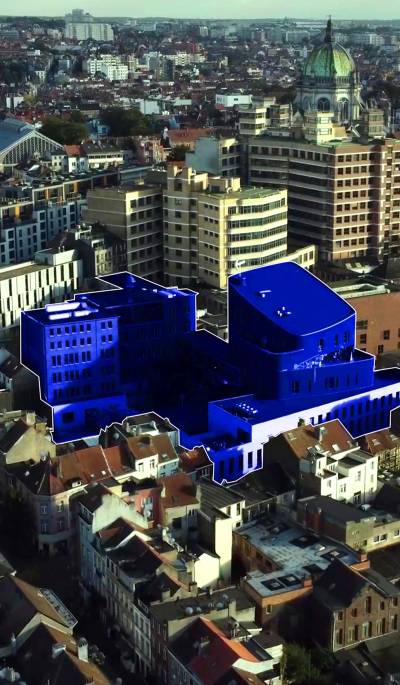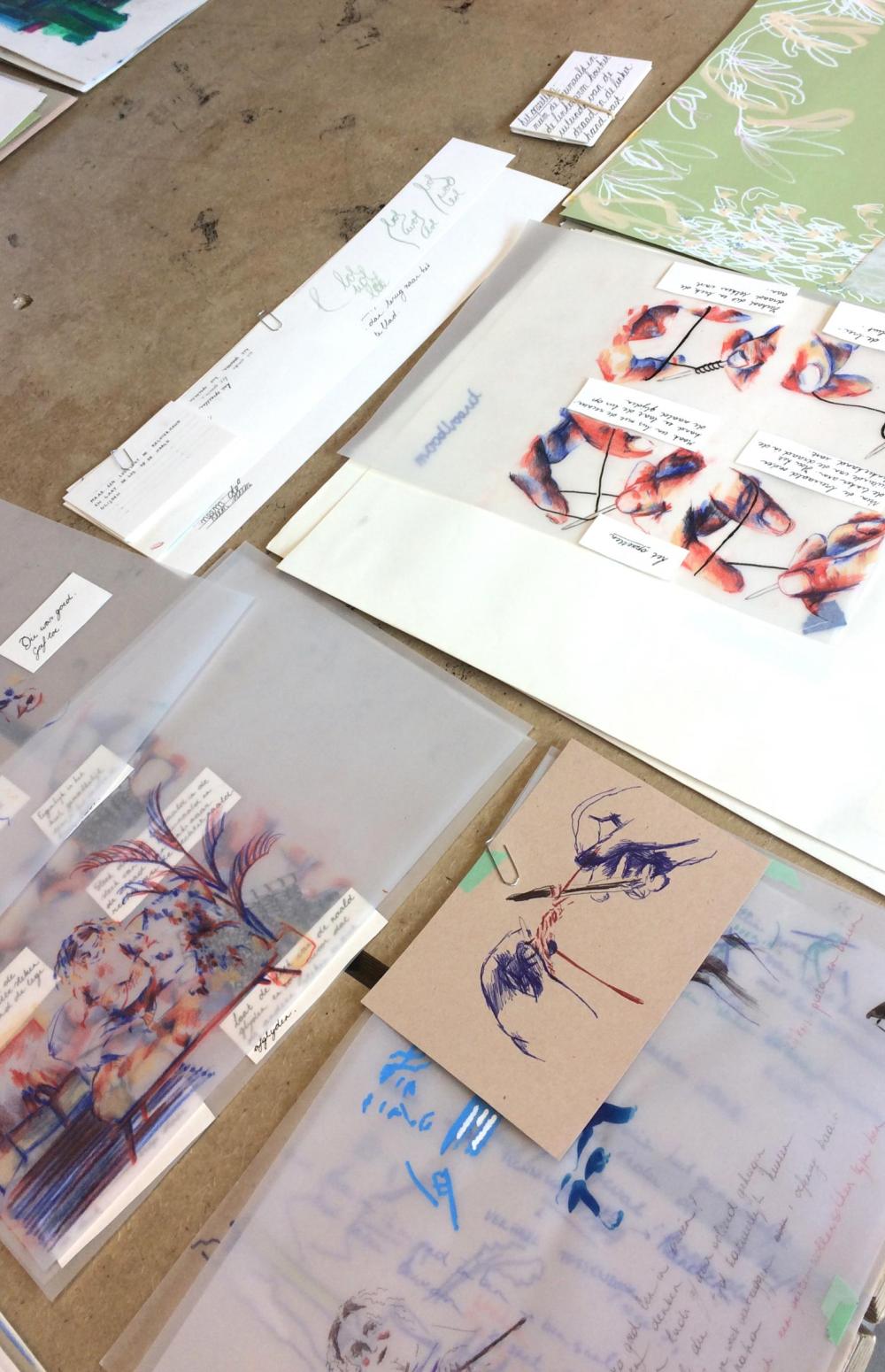
Campus Brussel / Sint-Lukas
Graphic Storytelling in Brussels
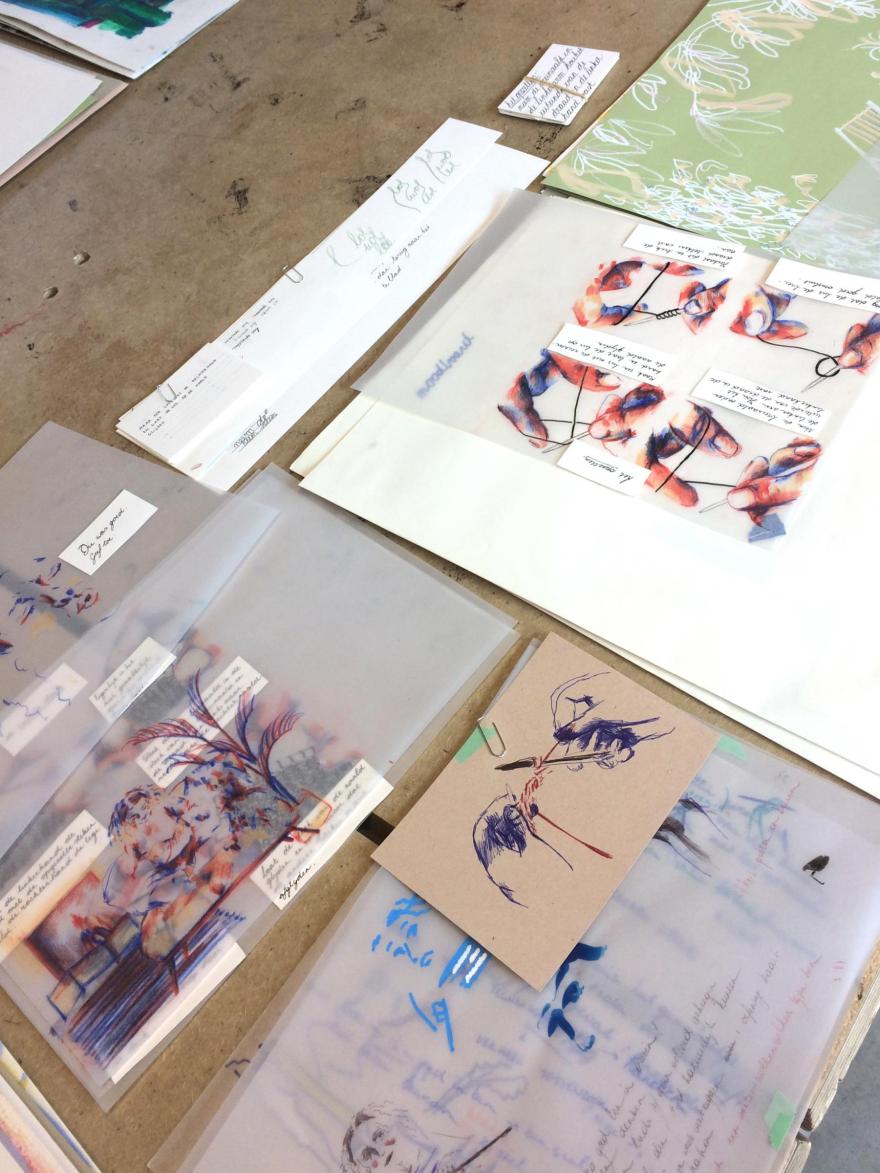
In the master Graphic Storytelling you learn to develop your graphic and narrative skills. This makes it unique in Flanders.
During the master in Graphic Storytelling, you prove your masterships as a graphic storyteller or autonomous illustrator. The programme features not only fiction but also non-fiction, including documentaries, autobiographies, reportage, and more.
• You will expand your technical drawing skills and learn to work with new technologies in both print and digital media.
• You will develop storytelling techniques to tell your own story in a personal way.
As a Master's student, you'll define your own project and formulate your own relevant research questions. You'll demonstrate your ability to work critically and innovatively within your chosen discipline or your ability to initiate multidisciplinary projects. You'll work in a productive and stimulating environment in which confrontation and communication with fellow students and tutors drive the development and deepening of your artistic practice.
About the MA training
The open, questioning attitude you take as a designer/author towards available media ensures that the switch between techniques and disciplines becomes a matter of course. In other words: the autonomous designer/author sometimes makes video, sometimes conceptual work, then a book or a digital project. In addition, you'll write a thesis in which you reflect on your practice, methodology and the choices you make. Alongside design, you'll focus on an ongoing critical analysis of your work process through academic writing and presentations.
A critical design attitude
During the Critical Practices and interdisciplinary Critical Study you'll learn research methodologies and collect, analyse and synthesise relevant information to answer your research questions. This will bring you insight into the manner in which designers operate in different geographical, historical and cultural contexts and will give you the necessary intellectual capacity to grow into the next generation of leading designers, authors and artists.
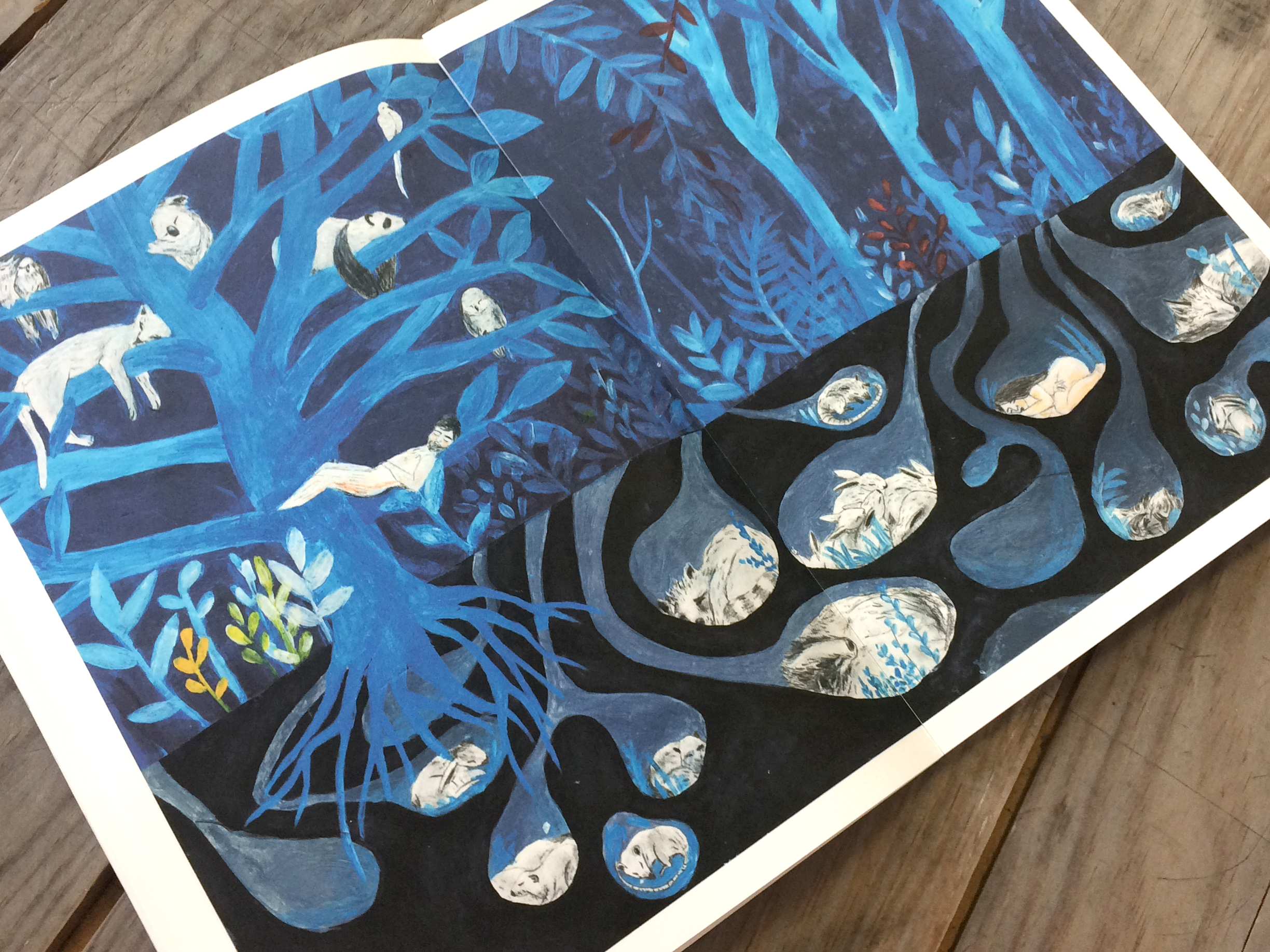
Master programme
The master graduate project
For your master graduate project, you choose your own artistic project. You realize this work and present it to a jury of internal and external experts during a public presentation. You contextualize your work with a thesis with which you situate your work within or against existing literature and debates. This proves that you can orient yourself within the field of the chosen artistic discipline.
For your master's thesis, you can make use of technical support and productional assistance and you rely on the advice of the tutors. Nevertheless, with your master's thesis, you prove that you work to a large extent independently.
Seminars
Seminars are an integral part of the master's program. LUCA has a particularly rich and diversified range of research seminars fed by the research groups of our campuses from Brussels, Ghent, Genk and Leuven. Each campus has its own researchers, research traditions and disciplines.
Together with your coordinator, you will select two seminars that match your ambitions. You can also choose from the courses given at the KU Leuven or its associated university colleges.
In our workshops, you will find a rich and versatile environment where ideas can grow and take shape.
Whether you work with glass, textiles or ceramics, or immerse yourself in digital practices such as 3D, VR and film, our maker spaces and specialised studios offer the space, tools and guidance to develop your artistic vision.
You work with both traditional crafts and advanced technologies, and you are encouraged to experiment, explore boundaries and acquire new skills.
Students also have access to all workshops across the different LUCA campuses.
Within this open and stimulating context, you collaborate with fellow students, learn from each other’s expertise, and build projects that emerge from research, imagination and the joy of making.
More information about our different workshops

Interested in this course?
Enrollment procedure
The application and enrollment procedure at LUCA School of Arts consists in general of three steps.
- First you will have to submit an online Admissions application in which you will be asked to upload certain documents required for the Admissions’ diploma and language check. We will be checking if you meet with the diploma and language requirements.
- The second step continues with your participation in a Master Assessment.
- Step three is the final and binding (online) registration (for which you will receive a unique registration link after succeeding the Master Assessment).
Do you want to start a Master's degree at LUCA?
Then you must pass the MASTER ASSESSMENT
Where do you have class?
Facilities & campus life
Campus Sint-Lukas Brussels
Paleizenstraat 70
1030 Brussels
+32 2 250 11 00
An international campus and an added value to your programme
- A modern and open campus in one of Europe's foremost artistic hubs
- Studio's and workshops, a state of the arts lending service, high tech print rooms …
- A creative community with four educational institutions and over a thousand artist and designers
- An art library renowned for its collection in the country
- At walking distance of the Brussels North railway station
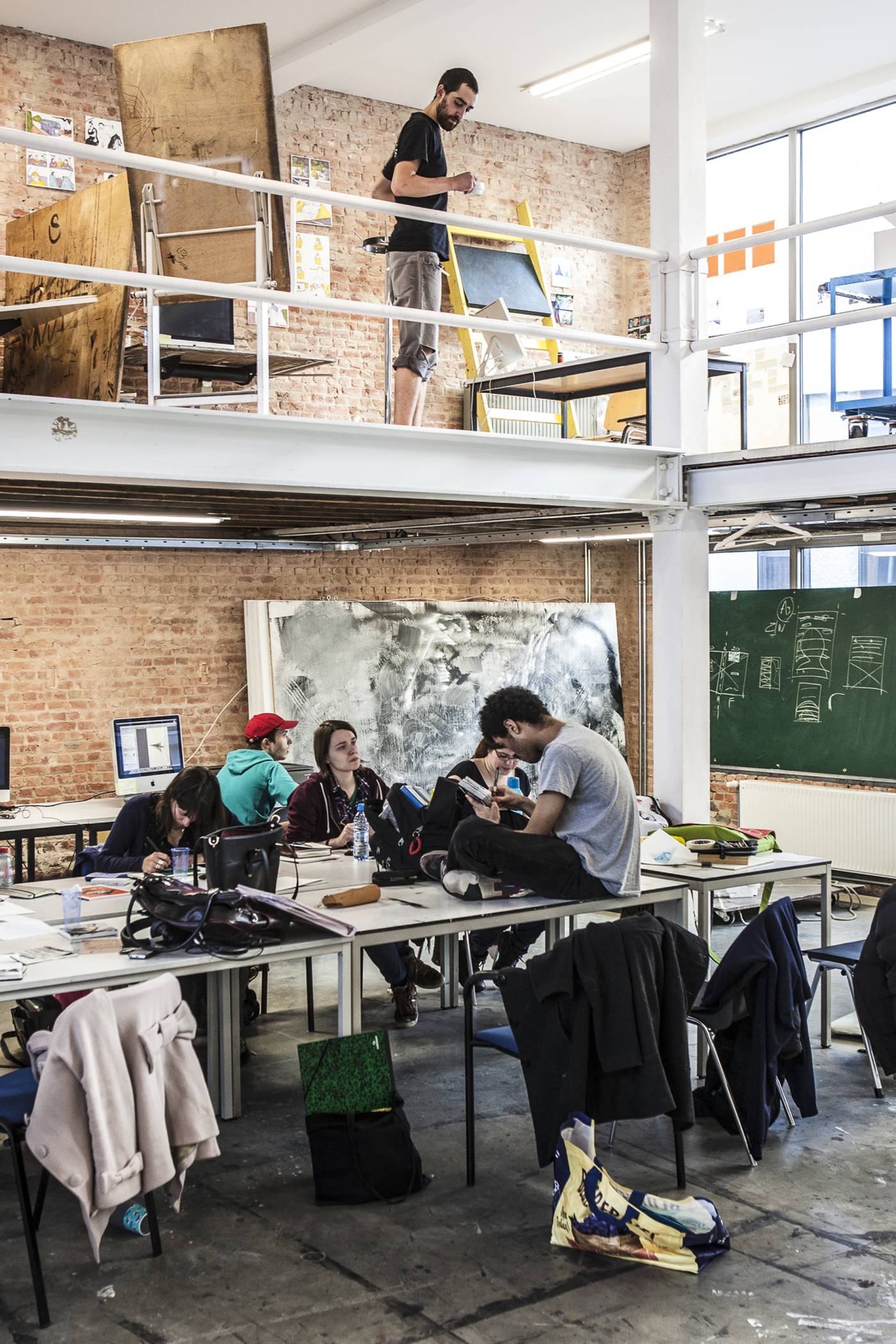
Our campus is situated within the dynamic context of Brussels. This diversity creates new avenues of thought and leads to a challenging artistic process. Surrounded by students from Belgium and abroad you'll be confronted by other realities that shift your boundaries.
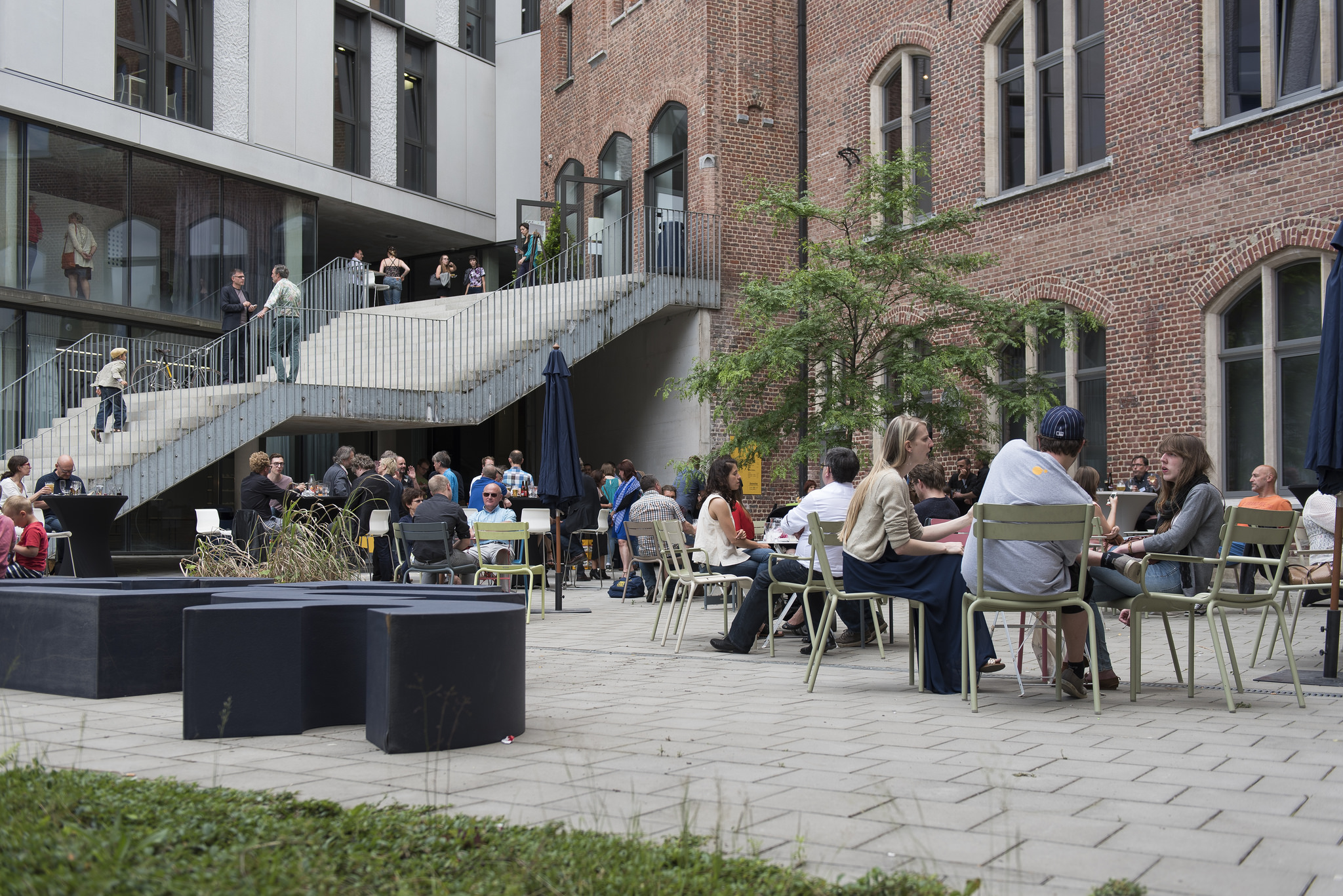
Contact
Heb je nog vragen? Contacteer ons vrijblijvend op bk.brussel@luca-arts.be
Paleizenstraat 70 / 1030 Brussels / +32 2 250 11 00 / facebook / Instagram
At LUCA we attach great importance to the quality of our courses
If the basic principle of the policy plan means that 'quality is our driving force', and that every aspect of the policy can be tested against this, then LUCA undeniably wants to develop and nurture a strong quality culture: a culture that leaves based on trust in people with talent and expertise, and which is aimed at valuing, inspiring and improving.
The formal quality framework for training within LUCA was named KOPERA, which stands for: Critically Analyzing the Quality of Training with Peers in Own Direction.
For KOPERA, LUCA starts from a vision of quality care that is based on trust and aimed at valuing, inspiring and improving.
During the six-year KOPERA cycle, each training course receives a panel of critical friends who examine the implementation of the quality characteristics and examine how the training contributes to the general LUCA policy.
The final element of KOPERA is the ultimate assurance of training quality. The key question is: "Does the program have a good quality culture that follows the 'plan-do-check-act' circle?"
LUCA publishes a quality sheet for each course. You can find this on the Education Quality page.
'I was already making my own comics at the art academy in Amsterdam. After making several small zines and publications, I was looking for a new challenge. In the Netherlands, I did not find a study program that suited me, but what I saw here appealed to me. After a transition year, I could start the master Graphic Storytelling in Brussels. I learned a lot about image creation as well as storytelling. I moved to Brussels to follow the course and towards the end of the Master programme, I went back to live in the Netherlands. I had a contract with a publisher before I presented my master's thesis to the jury. I don't think I would have achieved it without this programme. '
Anat Segal – author of Days of Onion
After graduating, our alumni start a career as graphic novelists, illustrators or graphic designers. Other graduates end up in an educational context, as a teacher of Art Education. Our thorough theoretical and practical training ensures that you not only excel in your own artistic discipline but can also be deployed in a broader field of work.
'After studying history at KU Leuven, I ended up in a completely different kind of study program at Sint-Lukas Brussels. The programme is much more practical, but in general also much more intensive. A lot of work was to be done all year round and as I remember I used to draw anywhere, anytime. I also learned that as a draftsman you should also be able to tell a story and that it is more important for your drawings to have personality than that to be just beautiful or correct. I was given the unique opportunity to create in complete freedom, without the worries of professional life, such as financial pressure or meddling customers. I took advantage of this luxury to create a full-fledged comic in my master's degree. This was published after graduating and I had a business card in the form of a first book. '
Michaël Olbrechts - author of De Allerlaatste Tijger
Visit us
Are you curious about our approach to art education? During our open days, you will get all the information you need, visit the campus, talk to our teaching staff and students ... Still not convinced? Visit our graduation show! During this, on-campus two-day art festival you can experience first hand how good our students really are.
Our teachers are specialists, active within their field of specialization on a daily basis. By working together intensively, they ensure an exciting cross-fertilization between the different fields:
- illustrators and graphic novelists: Judith Vanistendael, Ilah (Inge Heremans), Ephameron (Eva Cardon), Lukas Verstraete
- author Vincent Vaneste
- designer Simon Otten
- drawing: Georges Braem, Tom Pijnenborg, Klaas Vanhee
- performance artist Jan Pillaert
Meanwhile our theorists Dirk Pultau, Elke Van Damme, Johan Teirlinck and Volkmar Mühleis create a versatile artistic and theoretical program. In addition, various guest speakers and guest lecturers are invited every academic year. In this way, an inspiring artistic and reflective environment is created.
